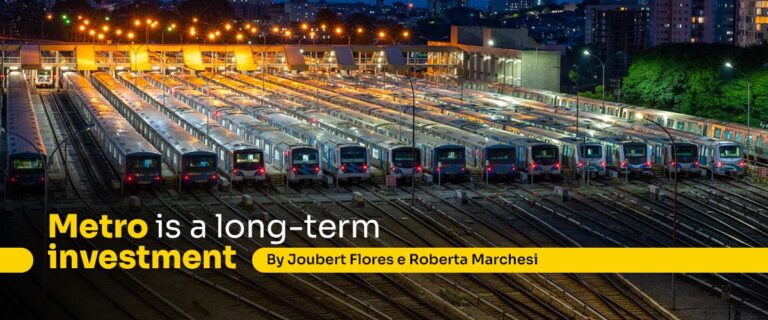
*Roberta Marchesi
The passenger rail transport is a public service of a social nature, which has as a goal the displacement of large numbers of people, structuring high demand corridors and contributing for the urban mobility improvement through the provision of a fast, regular, secure and sustainable service.
For a long time the passenger rail transport sector in Brazil was treated only as a public policy searching, through investment government subsidy, for a way to make the public high capacity transportation possible. In the sense, as planning, the deployment and operation were promoted by the public sector itself, the governments ended up taking advantage of these projects to solve other infrastructure issues of the city, such as drainage, lighting and surroundings.
With the advent of decentralization of public services, from 1997 on, the first concessions in the passenger rail transport emerged in Brazil and with them the need to think about this sector not only through the perspective of public policy, but as market, through the institution of a new business. And every business has to be made possible through a series of political, technical and economic factors, that emphasize efficiency in all sectors.
Since then, the passenger metro rail sector has been evolving as a business and has been showing itself very attractive for private concession. First, the business model considered only the system operation, with private construction. However, after 20 years from the first concession, the whole concession model has been considered, going through the construction, provision of systems, undercarriage, operation and maintenance on the private partner – the so-called whole PPPs.
In this way, the sector has been renewing itself to present models that make itself possible and a business, searching for a reduction of the government investment dependence, releasing public resources to sector such as education, health and security and, at the same time, stimulating private investment and the continuity of projects to attend the mobility of the citizens.
Nevertheless, to make passenger metro rail projects feasible as a business is necessary to optimize processes, to make resources efficient and to amplify the supply chain. These are roles that the private sector plays successfully, because they have free will to develop its supply chain and to establish control mechanisms, without bumping into the bureaucratic process established by the public body.
ANPTrilhos defends the investment for the advances of the rail transport networks, being it public or private; in a way the projects are developed and finished to improve the network that attends the citizens.
*Roberta Marchesi, Superintendent of National Association of Passenger Rail Operators (ANPTrilhos)





